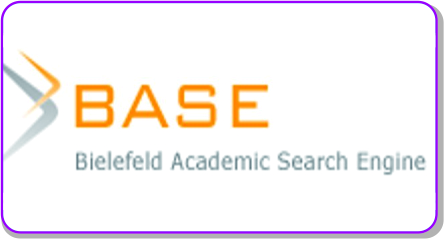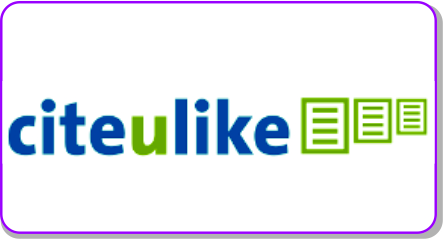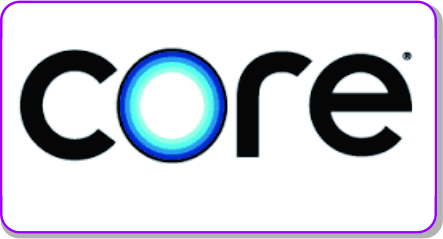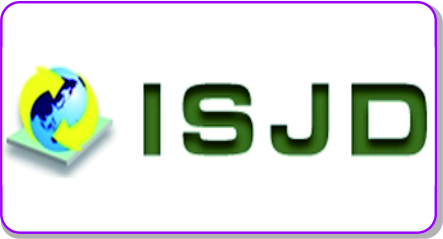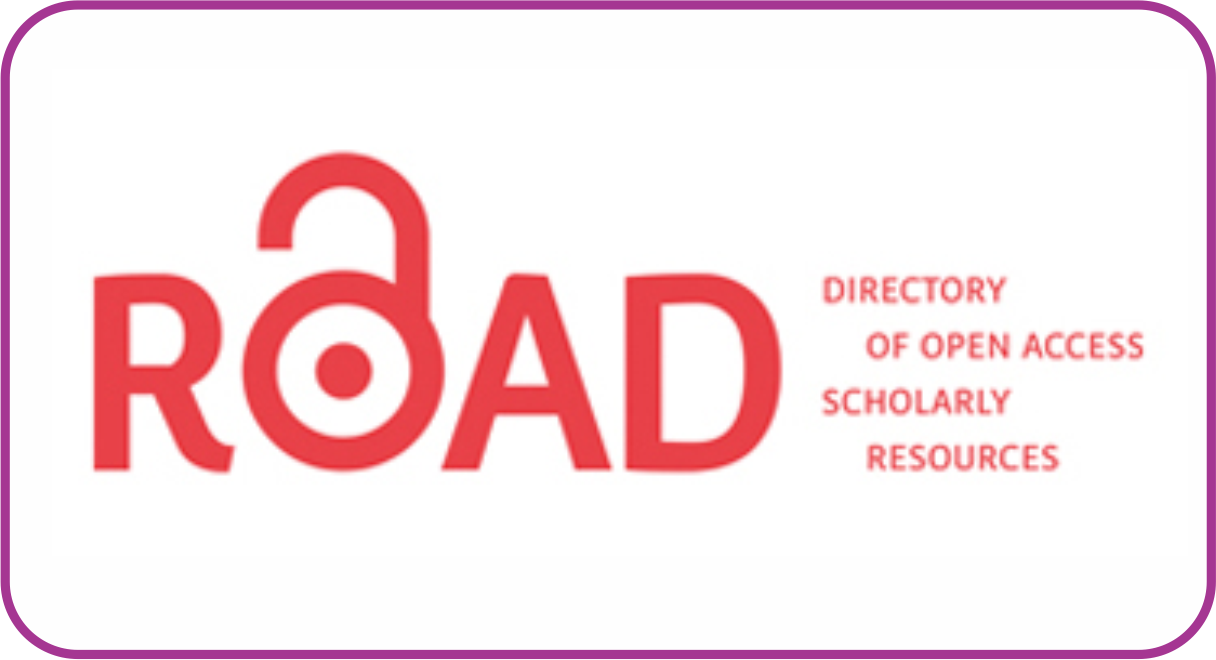Improving Student Academic Performance Through Web Base Learning
DOI:
https://doi.org/10.30983/educative.v7i2.6037Keywords:
Architecture Design Education, Academic Performance, Digital Informal Learning, Learning Model, Web-Based LearningAbstract
The development of digital technology has triggered changes in the way people learn in various educational institutions, both formal and informal. The development of digital technology has encouraged students to improve their academic performance or learning achievements. Several problems, however, can arise, from the gap in the ability of students to master digital technology, the ability to provide technological infrastructure, the competence of top-level management and the ability of the IT department to determine the success of digitalization. One learning model that can be utilized in physical distancing policy is Web-Based Learning (WBL). WBL is a learning model that can be used without limitation of time, space, and learning resources. WBL was developed by using the Research and Development (RnD) with a 4D (Define, Design, Develop, Disseminate) approach. To develop WBL products, we used the unified modeling language (UML), flowcharts, and context diagrams. The product was tested which included product validity testing, practicality testing, and product effectiveness testing. The testing results showed that the product was valid, practical, and effective to be used as a guide for developing and implementing WBL in order to improve students' academic performance.
References
Journals
Alkouz, a.M., ‘Web Services Based Learning Objects Generator for Device-Independent M-Learning’, International Journal of Emerging Technologies in Learning, 2006, 1–3
Azizi, Baharak, ‘Learning Management System Software ( LMS ) ABSTRACT ’:, International Journal of Advanced Biotechnology and Research (IJBR), 7.4 (2016), 2110–19
Bartlett, Michelle E, and James E Bartlett, ‘Case Study on the Impact of Technology on Incivility in Higher Education’, The Journal of Educators Online, 13.2 (2016), 1–18
Branch, Robert Maribe, Instructional Design : The ADDIE Approach, 1st edn (New York: Springer Science+Business Media, 2009) <https://doi.org/10.1007/978-0-387-09506-6>
Bygstad, Bendik, Egil Øvrelid, Sten Ludvigsen, and Morten Dæhlen, ‘From Dual Digitalization to Digital Learning Space: Exploring the Digital Transformation of Higher Education’, Computers and Education, 182.August 2021 (2022) <https://doi.org/10.1016/j.compedu.2022.104463>
Calvani, Antonio, Antonio Fini, and Maria Ranieri, ‘Assessing Digital Competence in Secondary Education. Issues, Models and Instruments’, Issues in Information and Media Literacy: Education, Practice and Pedagogy, 2 (2009), 153–72
Czerkawski, Betül C, ‘Blending Formal and Informal Learning Networks for Online Learning’, International Review of Research in Open and Distributed Learning, 17.3 (2016) <https://doi.org/https://doi.org/10.19173/irrodl.v17i3.2344CopiedAn error has occurred>
Degner, Miriam, Stephanie Moser, and Doris Lewalter, ‘Digital Media in Institutional Informal Learning Places: A Systematic Literature Review’, Computers and Education Open, 3 (2022), 100068 <https://doi.org/10.1016/j.caeo.2021.100068>
Ferrari, Anusca, Yves Punie, and Barbara N Bre, DIGCOMP : A Framework for Developing and Understanding Digital Competence in Europe ., 2013 <https://doi.org/10.2788/52966>
Hariadi, Bambang, ‘Web-Based Cooperative Learning, Learning Styles, and Student’S Learning Outcomes’, Jurnal Cakrawala Pendidikan, 53.2 (2015), 160–70 <https://doi.org/10.1017/CBO9781107415324.004>
Hutain, Jérôme, and Nicolas Michinov, ‘Improving Student Engagement during In-Person Classes by Using Functionalities of a Digital Learning Environment’, Computers and Education, 183.August 2021 (2022) <https://doi.org/10.1016/j.compedu.2022.104496>
Jeon, Jaehee, and Sisook Kim, ‘The Mediating Effects of Digital Literacy and Self-Efficacy on the Relationship between Learning Attitudes and Ehealth Literacy in Nursing Students: A Cross-Sectional Study’, Nurse Education Today, 113.April (2022), 105378 <https://doi.org/10.1016/j.nedt.2022.105378>
Kuklina, Ludmila, and Sergey Kuklin, ‘Web Content as a Base Component of the Educational Environment’, in SHS Web of Conferences (Moscow, Russia: EDP Sciences, 2016), 02023, 0–3 <https://doi.org/10.1051/shsconf/20162902023>
Lawanto, Oenardi, ‘Pembelajaran Berbasis Web Sebagai Metoda Komplemen Kegiatan Pendidikan Dan Pelatihan*’, Unitas, 9.1 (2000), 44–58
Lee, Jung-Sook, ‘The Relationship Between Student Engagement and Academic Performance: Is It a Myth or Reality?’, The Journal of Educational Research, 107.3 (2014), 177–85 <https://doi.org/10.1080/00220671.2013.807491>
Maiyana, Efmi, Mira Susanti, Supratman, Yuninda Tria, and Ramdalel, ‘Application of Android System for Anti-Drug Information’, Journal of Physics: Conference Series, 1471.1 (2020) <https://doi.org/10.1088/1742-6596/1471/1/012001>
Mehrvarz, Mahboobe, Elham Heidari, Mohammadreza Farrokhnia, and Omid Noroozi, ‘The Mediating Role of Digital Informal Learning in the Relationship between Students’ Digital Competency and Their Academic Performance’, Computers and Education, 167.June 2020 (2021), 104184 <https://doi.org/10.1016/j.compedu.2021.104184>
Meyers, Eric M., Ingrid Erickson, and Ruth V. Small, ‘Digital Literacy and Informal Learning Environments: An Introduction’, Learning, Media and Technology, 38.4 (2013), 355–67 <https://doi.org/10.1080/17439884.2013.783597>
Moldavan, Alesia Mickle, Christine Edwards-Leis, and Jennifer Murray, ‘Design and Pedagogical Implications of a Digital Learning Platform to Promote Well-Being in Teacher Education’, Teaching and Teacher Education, 115 (2022), 103732 <https://doi.org/10.1016/j.tate.2022.103732>
Ng, Wan, ‘Can We Teach Digital Natives Digital Literacy?’, Computers and Education, 59.3 (2012), 1065–78 <https://doi.org/10.1016/j.compedu.2012.04.016>
Persada, Alif Ringga, ‘Peningkatan Hasil Belajar Matematika Melalui Pengembangan Bahan Ajar Berbasis Website’, EduMa, 6.1 (2017), 62–76 <https://doi.org/10.24235/eduma.v6i1.1661>
R, Aiken Lewis, ‘Three Coefficients for Analysing Reliability and Validity of Rating.’, Educational and Psychological Measurement, 45 (1985), 131–42 <https://doi.org/10.1177/07399863870092005>
RIDUWAN, BELAJAR MUDAH PENELITIAN UNTUK GURU-KARYAWAN DAN PENELITI PEMULA, ed. by H.J.S. HUSDARTA, ADKON, NONO MULYONO, and SUBANDI, 9th edn (BANDUNG: ALFABETA, 2013)
Rifai, Irfan, ‘Designing Content For A Web-Based Application Used In Blended Composition Classes: Things To Consider In The EFL/ESL Context’, Humaniora, 5.2 (2014), 1049–55
Sackey, Donnie Johnson, Minh-Tam Nguyen, and Jeffery T Grabill, ‘Constructing Learning Spaces: What We Can Learn from Studies of Informal Learning Online’, Computers and Composition, 35 (2015), 112–24 <https://doi.org/https://doi.org/10.1016/j.compcom.2015.01.004>
Sagita, Randa, Fajriah Azra, and Minda Azhar, ‘Pengembangan Modul Konsep Mol Berbasis Inkuiri Terstruktur Dengan Penekanan Pada Interkoneksi Tiga Level Representasi Kimia Untuk Kelas X SMA’, Jurnal Eksakta Pendidikan (Jep), 1.2 (2017), 25–32 <https://doi.org/10.24036/jep.v1i2.48>
Shen, Demei, Moon Heum Cho, Chia Lin Tsai, and Rose Marra, ‘Unpacking Online Learning Experiences: Online Learning Self-Efficacy and Learning Satisfaction’, Internet and Higher Education, 19 (2013), 10–17 <https://doi.org/10.1016/j.iheduc.2013.04.001>
Supratman, Toni Arianto, and Efmi Maiyana, ‘Development of Local Web-Based Learning (LWBL) as Low-Cost Digital Learning Efforts’, Journal of Physics: Conference Series, 1471.1 (2020) <https://doi.org/10.1088/1742-6596/1471/1/012003>
Ülker, Doğancan, and Yücel Yılma, ‘Learning Management Systems and Comparison of Open Source Learning Management Systems and Proprietary Learning Management Systems’, JOURNAL OF SYSTEMS INTEGRATION, 2 (2016), 18–24 <https://doi.org/10.20470/jsi.v7i2.255>
Wihastyanang, Wardani Dwi, Daning Hentasmaka, and Rosi Anjarwati, ‘Active Learning Using Learning Management System To Improve Students ’ Competence’, Journal on English as a Foreign Language, 4.1 (2014), 1–4
Zakir, Supratman, ‘Modernisasi Administrasi Usaha Kecil Menengah (Ukm) Melalui Pemanfaatan Sistem Informasi’, Proseding Seminar Nasional Asosiasi Perguruan Tinggi Ilmu Komputer (APTIKOM), 1.1 (2016) <https://doi.org/10.5281/zenodo.241507>
Zakir, Supratman, Sarjon Defit, and Vitriani, ‘Indeks Kesiapan Perguruan Tinggi Dalam Mengimplementasikan Smart Campus’, Jurnal Teknologi Informasi Dan Ilmu Komputer (JTIIK), 6.3 (2019), 267–76 <https://doi.org/10.25126/jtiik.20196986>
Zakir, Supratman, Efmi Maiyana, Agus Nur Khomarudin, Rina Novita, and Mayuti Deurama, ‘Development of 3D Animation Based Hydrocarbon Learning Media’, Journal of Physics: Conference Series, 1779.1 (2021) <https://doi.org/10.1088/1742-6596/1779/1/012008>
Zakir, Supratman, and Hidayat Rahmat, ‘Web-Based Learning Model That Can Be Implemented in Learning Settings Without Being Limited by Time , Place and Space’, Journal of Theoretical an Applied Information Technology, 96.23 (2018), 7996–8005
Downloads
Submitted
Accepted
Published
Issue
Section
License
Authors who publish with this journal agree to the following terms:
1. Authors retain copyright and grant the journal right of first publication with the work simultaneously licensed under a Creative Commons Attribution License that allows others to share the work with an acknowledgment of the work's authorship and initial publication in this journal.
2. Authors are able to enter into separate, additional contractual arrangements for the non-exclusive distribution of the journal's published version of the work (e.g., post it to an institutional repository or publish it in a book), with an acknowledgment of its initial publication in this journal.
3. Authors are permitted and encouraged to post their work online (e.g., in institutional repositories or on their website) prior to and during the submission process, as it can lead to productive exchanges, as well as earlier and greater citation of published work (See The Effect of Open Access).

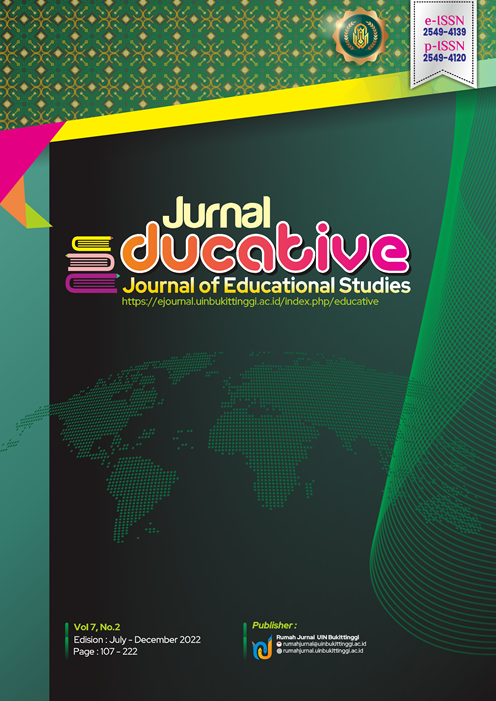



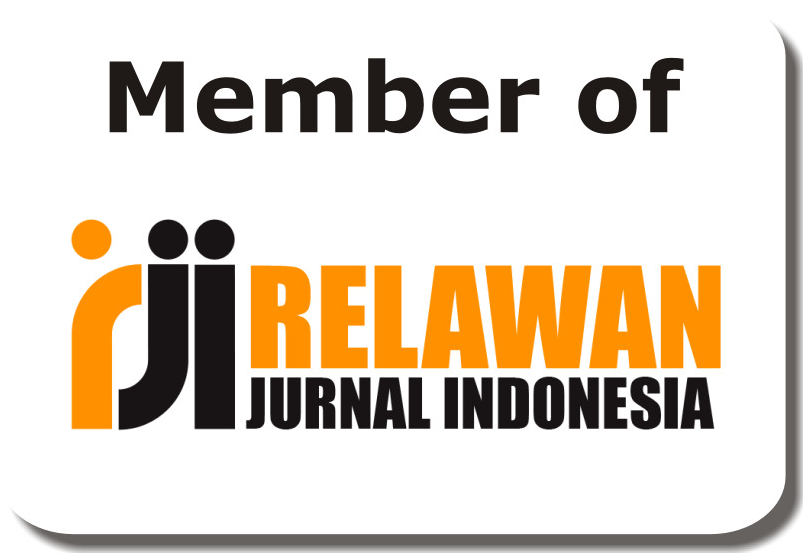


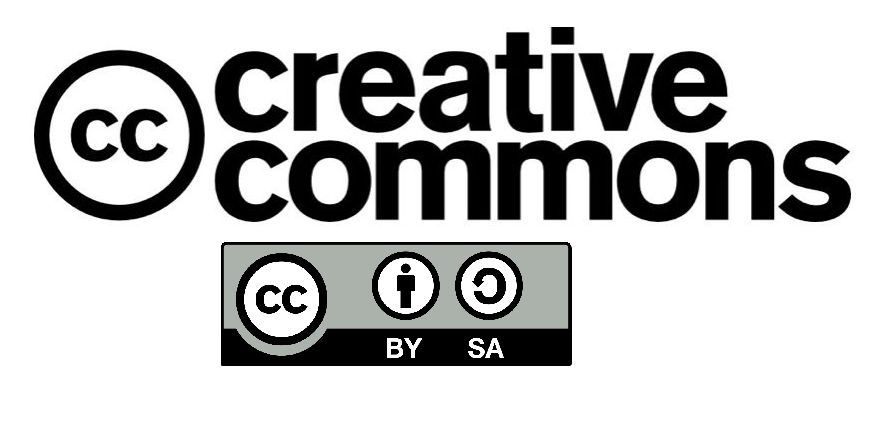


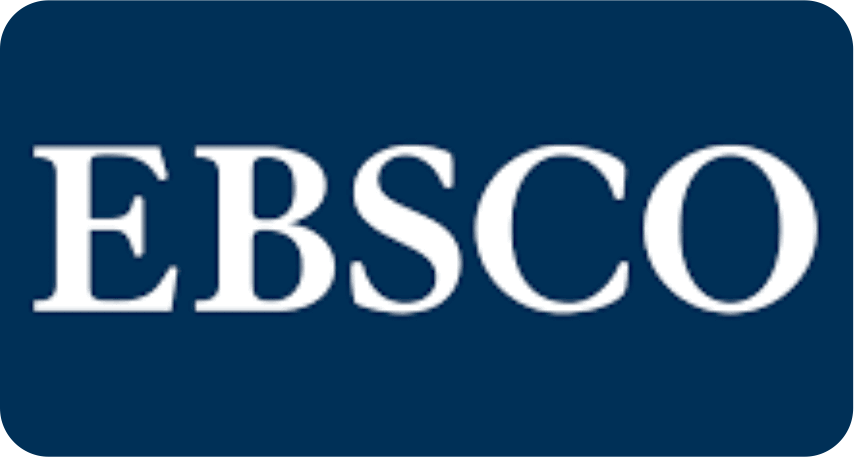






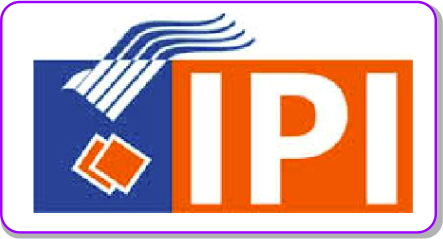 Â
 
